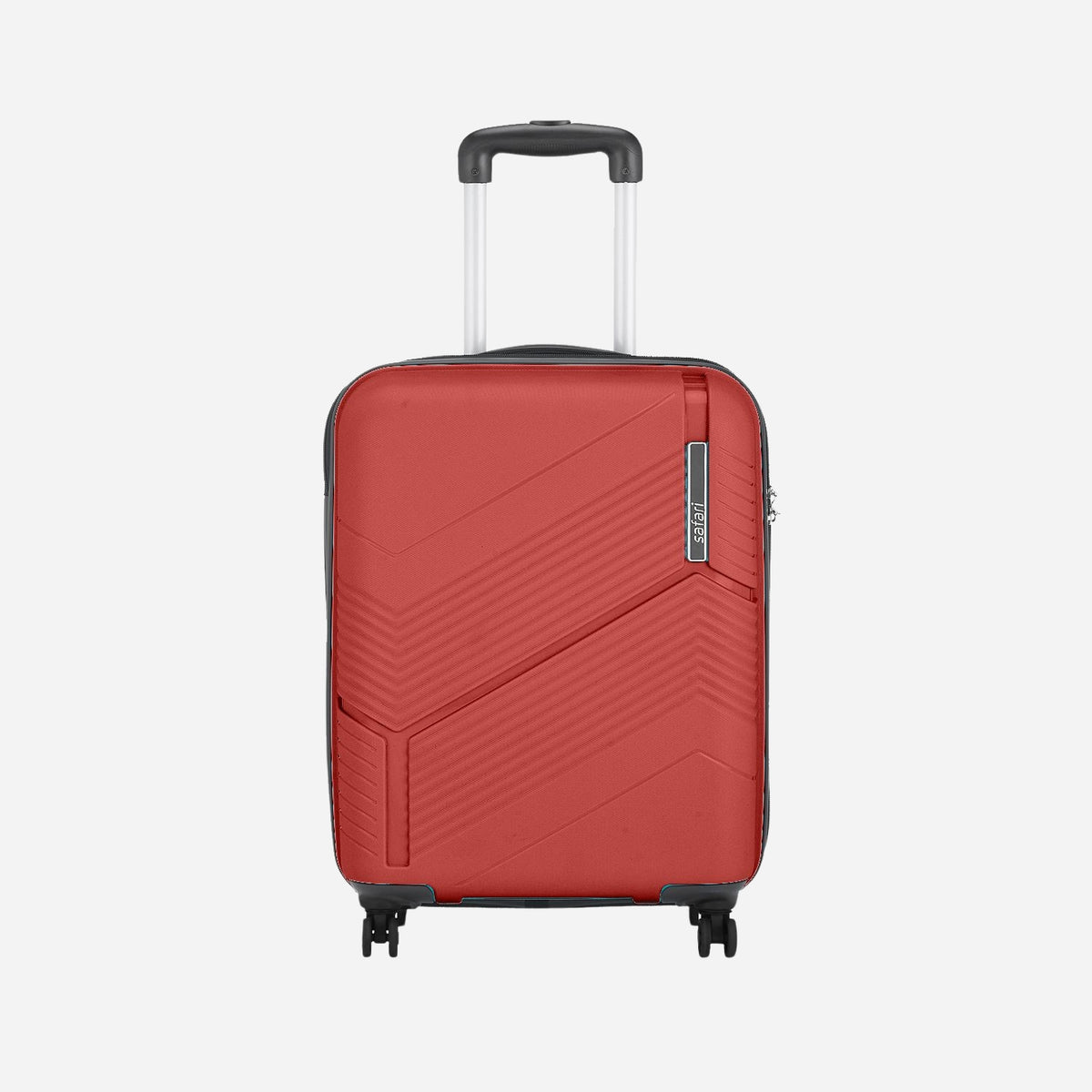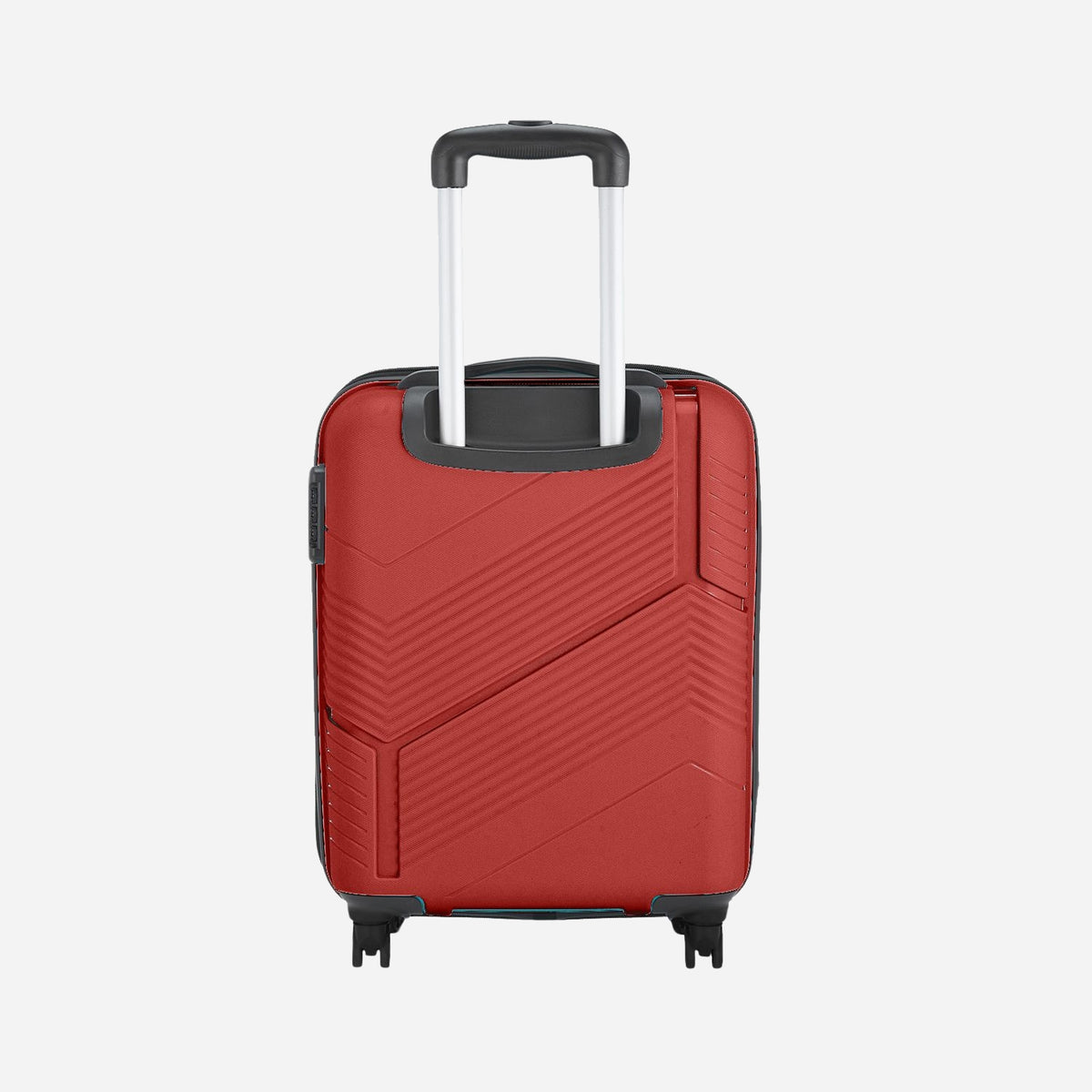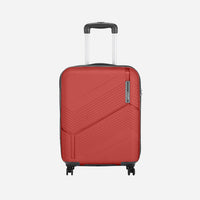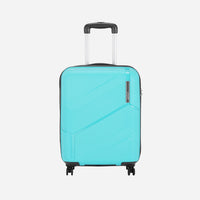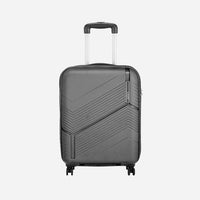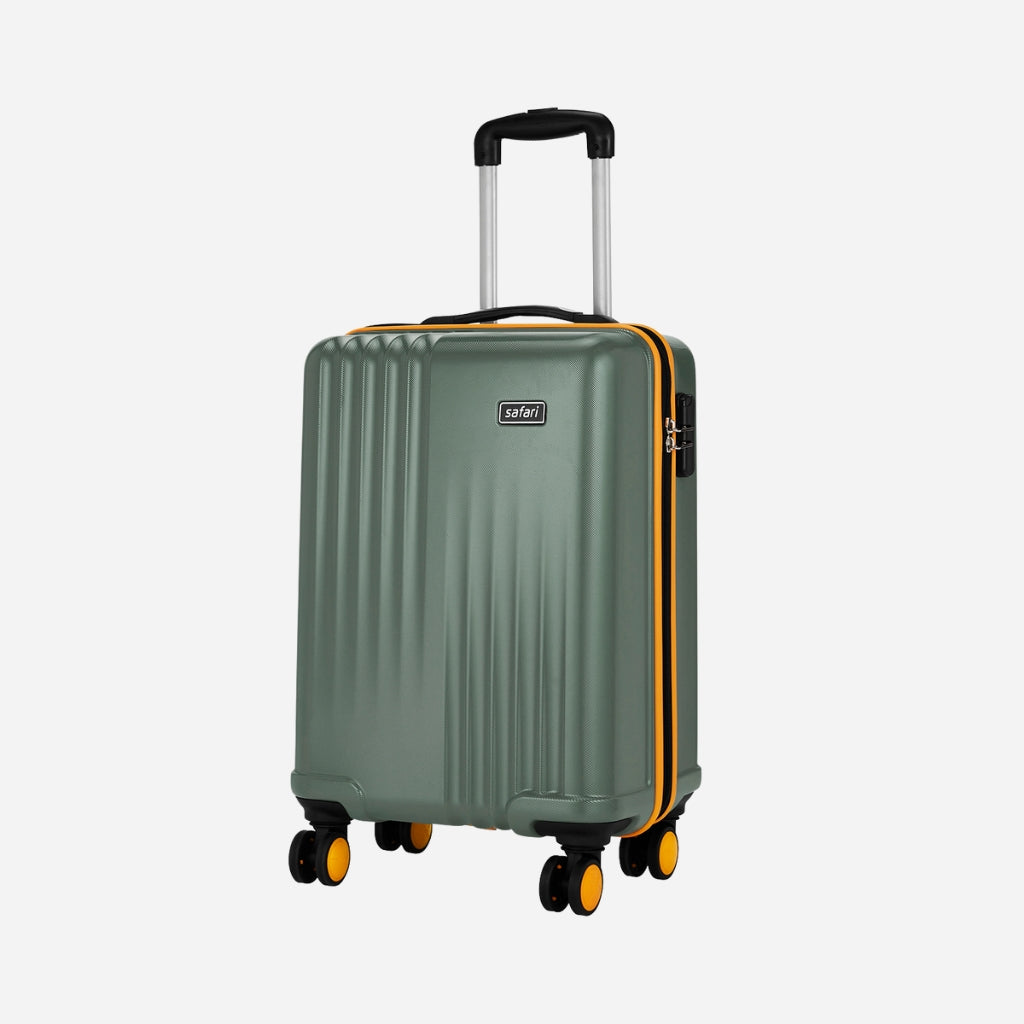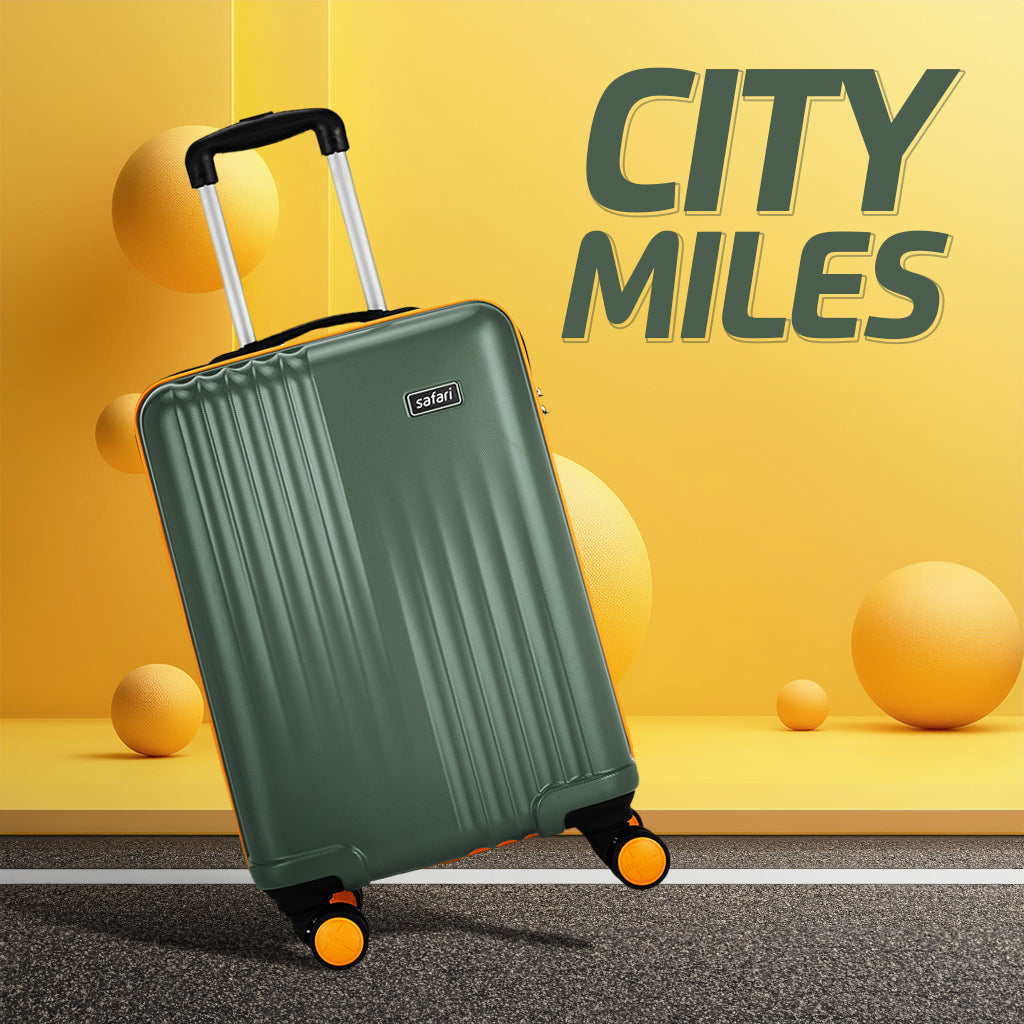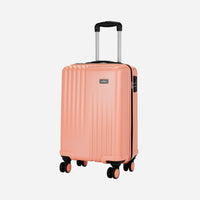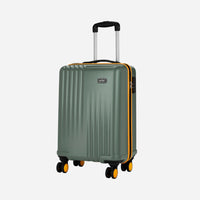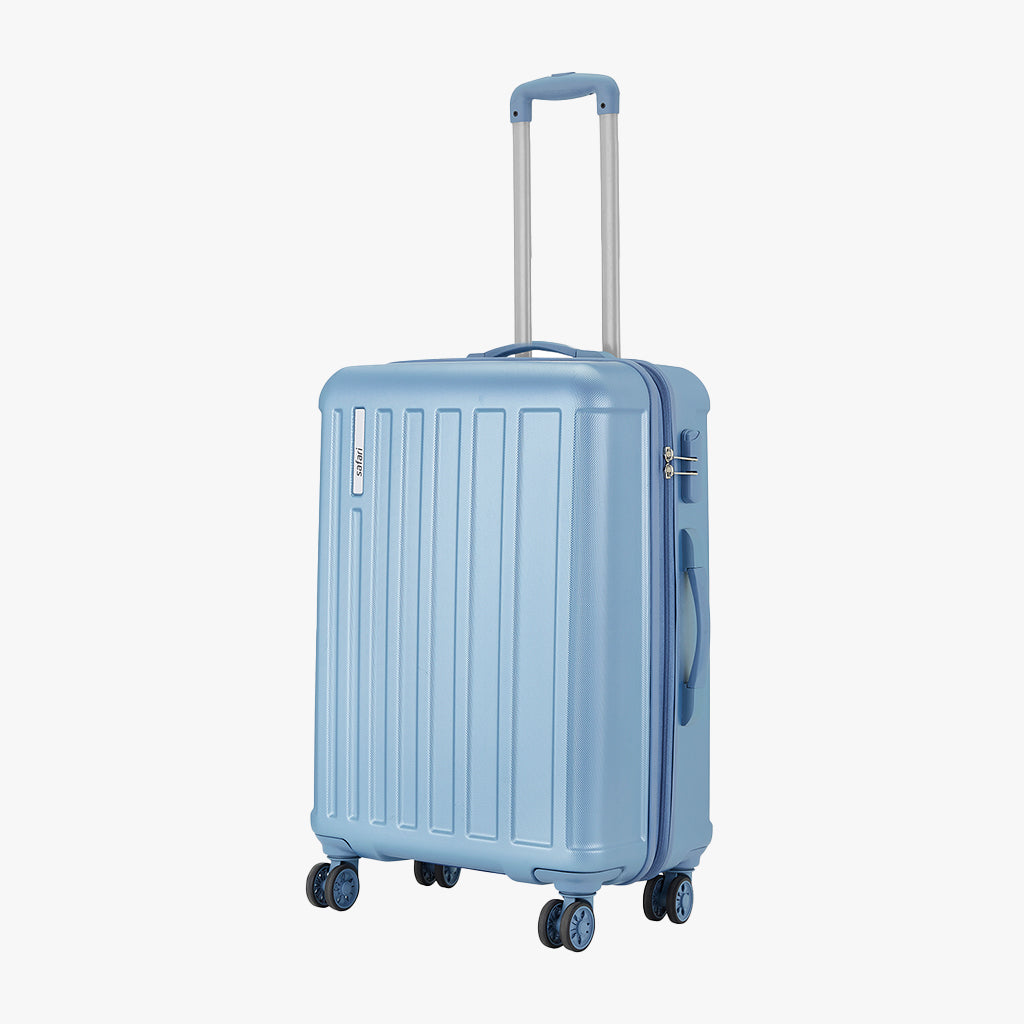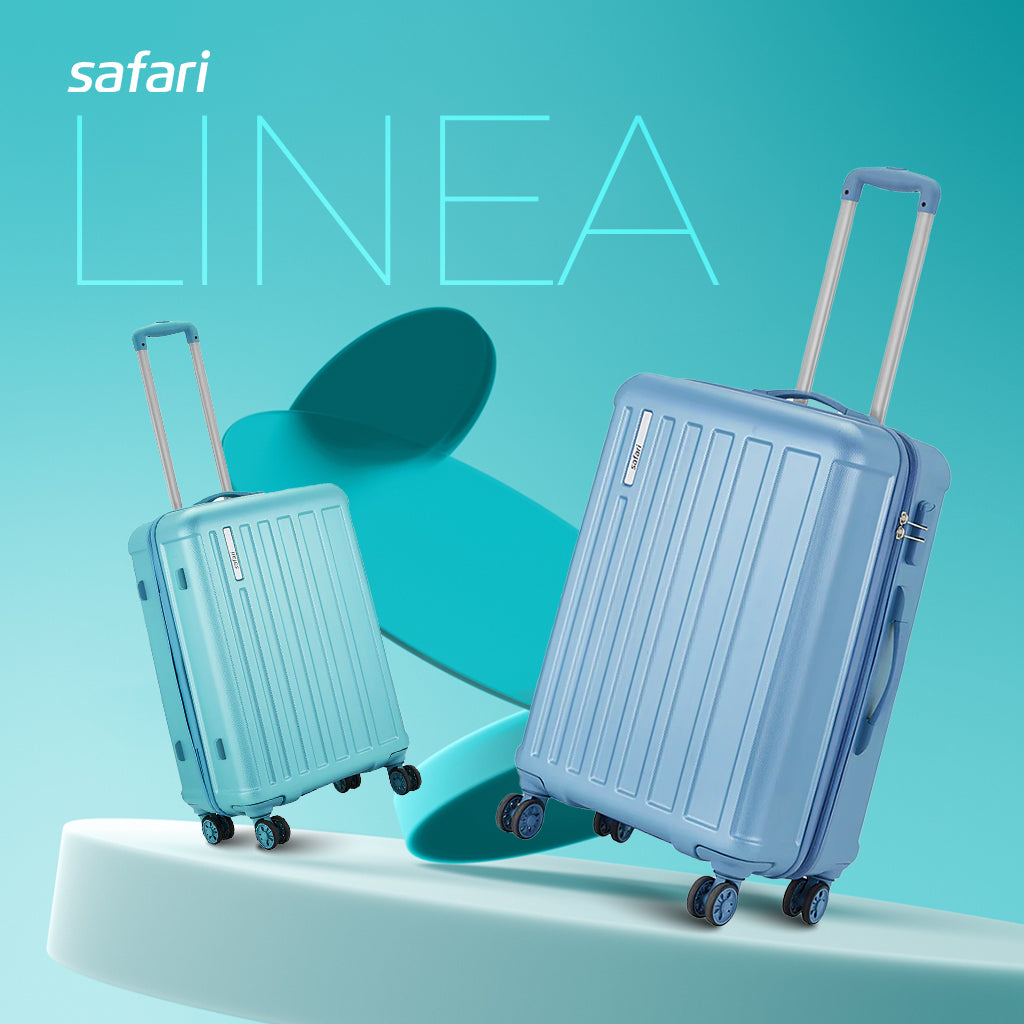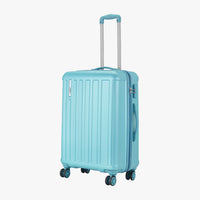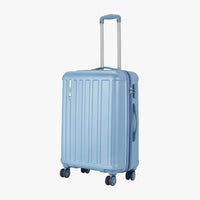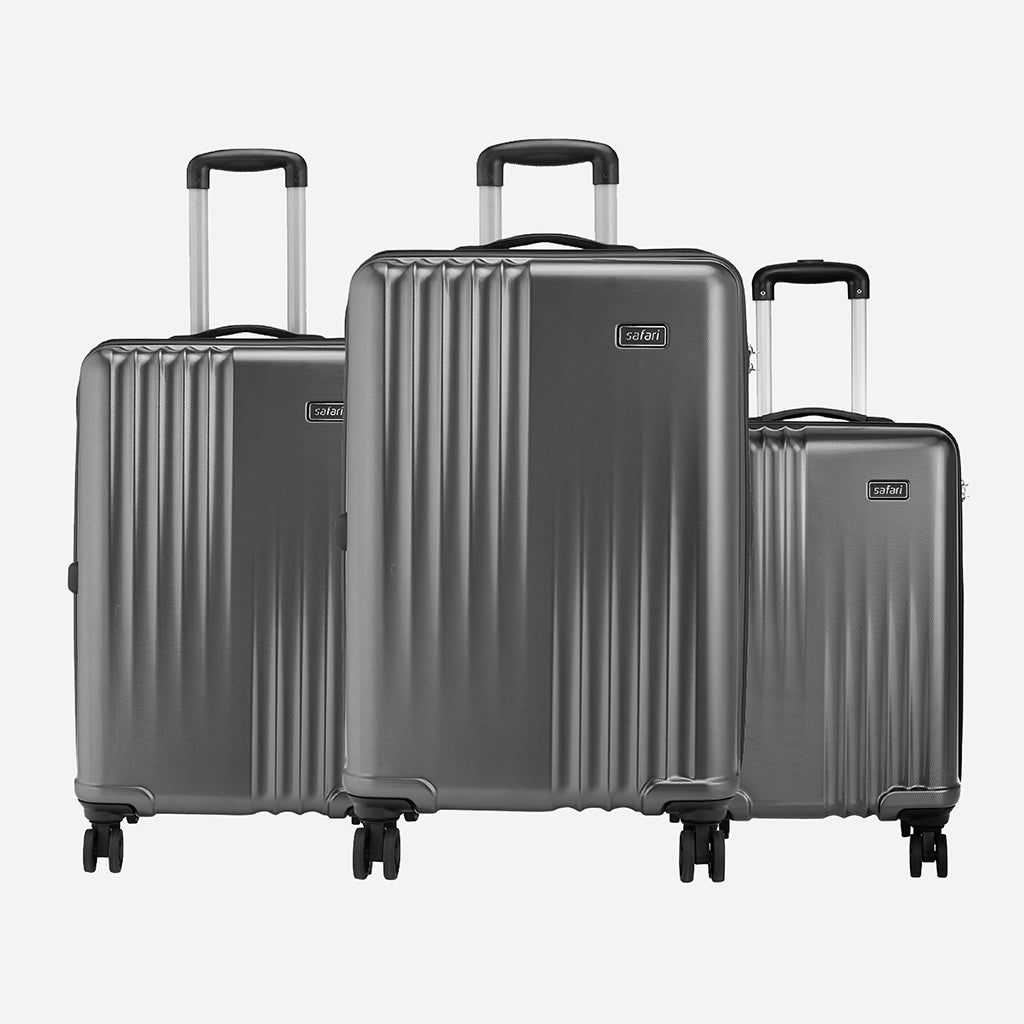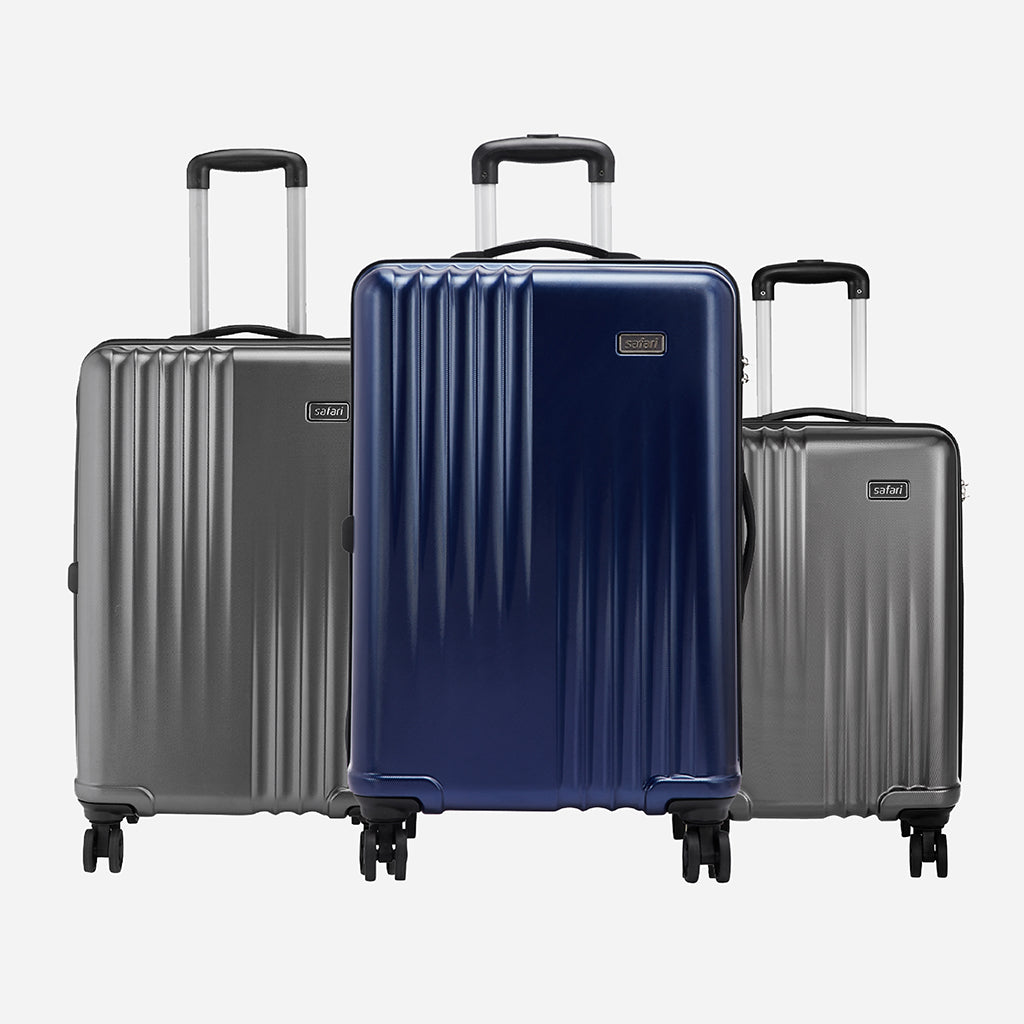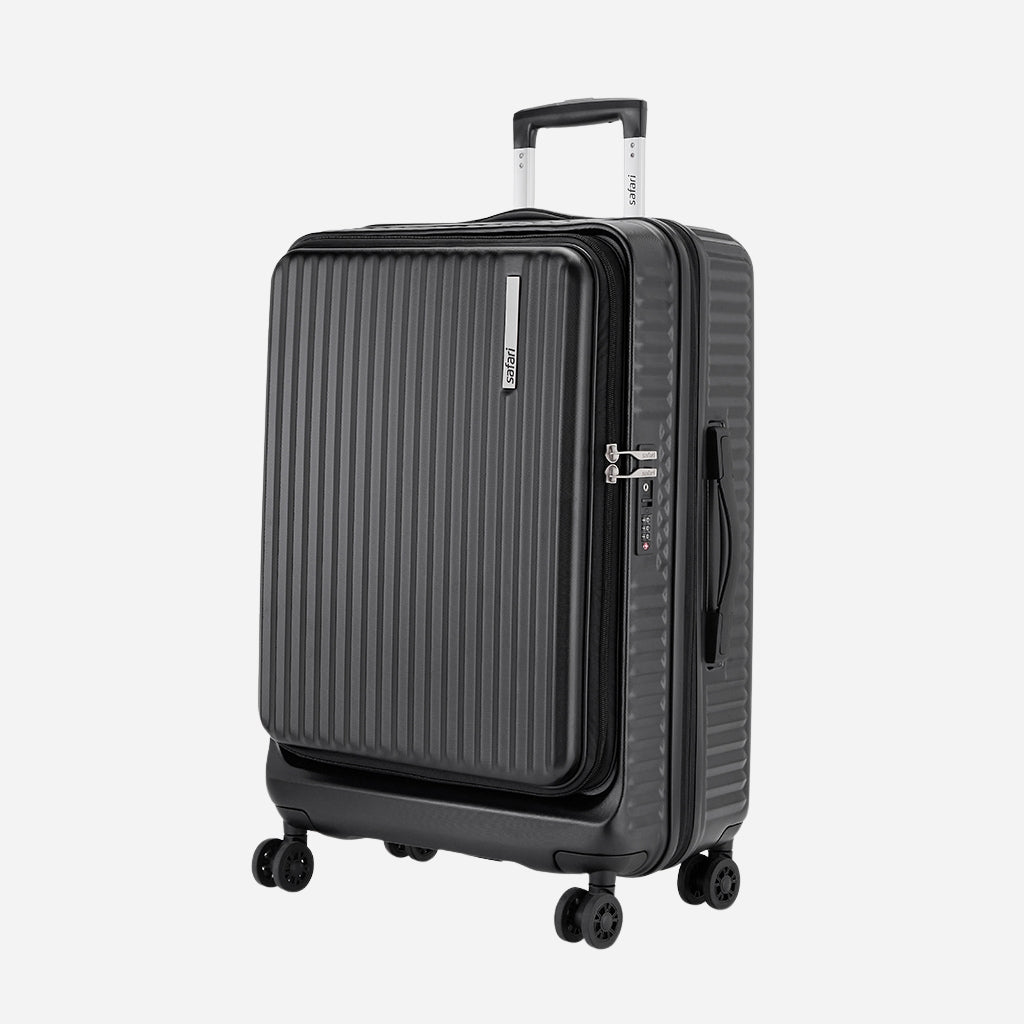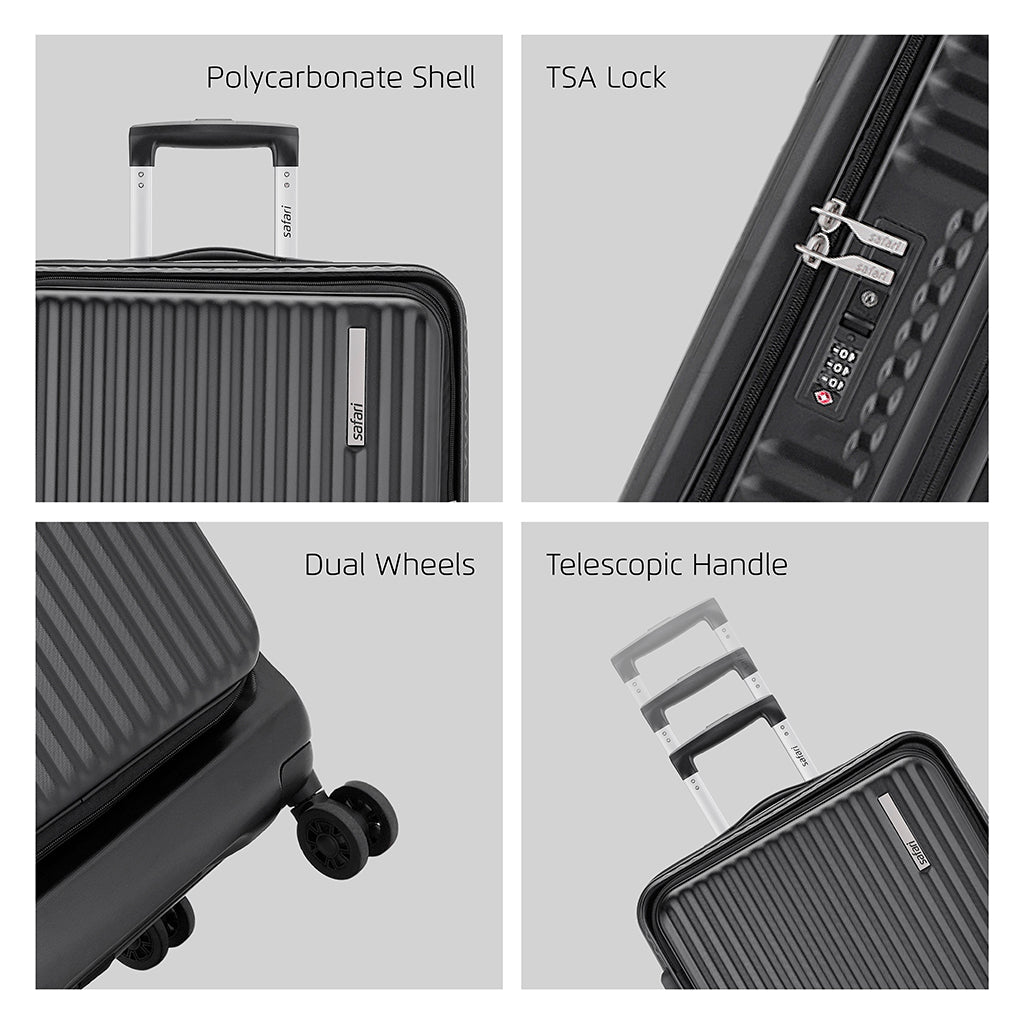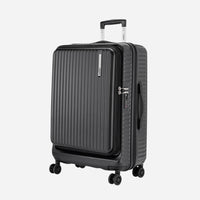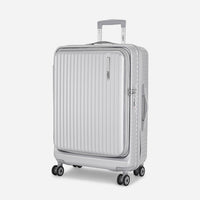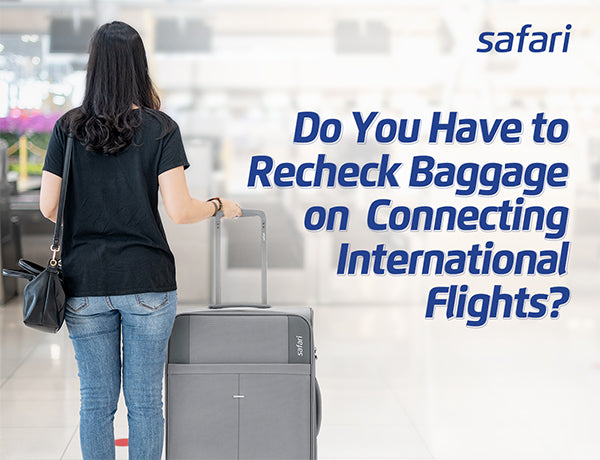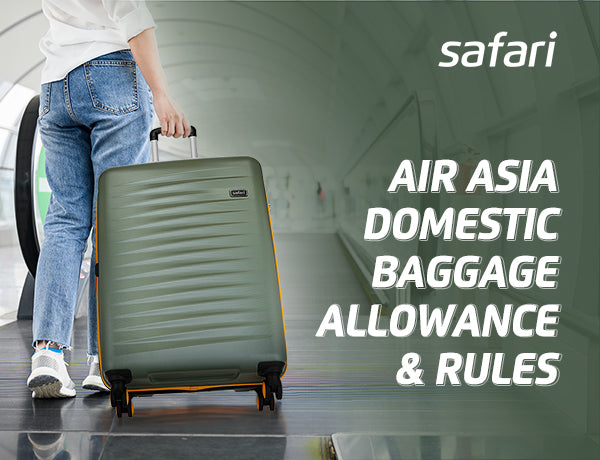Choosing the right material for your luggage can significantly impact your travel experience, affecting everything from durability and weight to style and cost. Two commonly debated materials in the luggage industry are polypropylene and polycarbonate. Polypropylene is known for its lightweight and flexible nature, while polycarbonate offers superior durability and a sleek appearance. This article aims to provide a comprehensive comparison of polypropylene vs polycarbonate luggage to help travellers understand the strengths and weaknesses of each and help them decide which trolley bag is best polycarbonate or polyester; thus enabling them to make informed decisions based on their specific travel needs and preferences.
Polypropylene Luggage
Polypropylene is a thermoplastic polymer known for its lightweight and flexibility. It's widely used in various industries for its robustness and resistance to chemicals and solvents.
Polypropylene is commonly used to manufacture hardsided luggage due to its ability to withstand impact and its lightweight properties. Safari Bags’ hard trolley bags offer the best options for the same.
Pros:
- Lightweight and easy to handle: Polypropylene trolley bags are typically lighter than other materials, making them easier to carry.
- High resistance to chemicals and solvents: It offers excellent protection against spills and other environmental hazards.
- Often more affordable than polycarbonate: Polypropylene suitcase tends to be more budget friendly.
- Flexibility and shock absorbance: It can absorb impact well, protecting contents inside.
Cons:
- Less durable compared to polycarbonate: Polypropylene may not withstand heavy impacts as well as polycarbonate.
- Can be less aesthetically pleasing: It often has a more basic appearance with limited design options.
- Limited color and design options: Polypropylene luggage may not offer as many choices in terms of colors and styles compared to other materials.
Polycarbonate Luggage
Polycarbonate is a strong and durable thermoplastic polymer known for its high impact resistance and lightweight properties. It's widely used in manufacturing due to its ability to withstand heavy impacts without cracking or breaking.
Polycarbonate is commonly used to produce hardsided luggage shells because of its exceptional durability and ability to protect contents from impact during travel, and for those who prefer printed trolley bags, they can seek the best at Safari Bags.
Pros:
- Extremely durable and impact resistant: Polycarbonate trolley bag is highly resilient to bumps, drops, and rough handling.
- Lightweight yet sturdy: It provides strength without adding significant weight, making it easier to handle.
- Available in a variety of colors and designs: Polycarbonate luggage offers a wide range of aesthetic options to suit different tastes.
- Better protection for fragile items: It provides excellent protection for delicate belongings inside the luggage.
Cons:
- Generally more expensive than polypropylene: Polycarbonate suitcase tends to be higher in price due to its superior durability and quality.
- Can be prone to scratches: While durable, polycarbonate surfaces may show scratches over time.
- Less flexible, making it harder to fit in tight spaces: Its rigid nature may pose challenges in fitting into small or irregular spaces.
Polycarbonate vs Polypropylene Luggage: Which is Better?
Choosing between polypropylene and polycarbonate luggage depends on various factors that impact your travel experience. Factors such as durability, weight, design, affordability, and brand reputation play crucial roles in making an informed decision. Safari Bags offers the best trolley bags set of 3.
Durability: Polypropylene luggage offers decent durability with flexibility and shock absorbance, but it tends to be less robust compared to polycarbonate, which is highly impact-resistant and durable. Polycarbonate generally provides better longevity, making it ideal for frequent travelers.
Weight: Polypropylene luggage is lightweight and easy to handle, but polycarbonate is equally lightweight while offering superior strength and sturdiness. Polycarbonate is often preferred for its ability to protect contents without adding significant weight.
Design: Polycarbonate luggage wins in terms of design variety and aesthetic appeal. It comes in a wide range of colors and styles, offering more choices compared to the more limited options typically found with polypropylene.
Price: Polypropylene luggage is usually more affordable than polycarbonate. While polypropylene provides a budget-friendly option, polycarbonate's durability and design versatility often justify its higher price point as better value for money in the long run.
Overall: Considering durability, weight, design, and price, polycarbonate emerges as the preferred choice for most travelers seeking reliable and stylish luggage. Its superior durability and aesthetic options outweigh the slightly higher cost.
Brand Considerations: Popular brands like Safari prioritize polycarbonate for its superior durability and aesthetic appeal. Safari recommends polycarbonate for travelers looking for long-lasting, stylish luggage that meets their diverse travel needs.
In conclusion, when choosing between polypropylene and polycarbonate luggage, assessing your specific travel requirements and preferences is essential. Polycarbonate stands out as the better choice for its durability, lightweight construction, and versatile design options, making it an excellent investment for frequent and style-conscious travelers alike.
Polypropylene vs Polycarbonate Luggage: What is the Difference?

Let us quickly grasp the key differences between polypropylene and polycarbonate luggage with our handy table, helping you make an informed decision based on your travel needs and preferences.
|
Key Factors |
Polypropylene Luggage |
Polycarbonate Luggage |
|
Flexibility |
More flexible and offers better shock absorbance. |
Less flexible but more rigid, providing better impact resistance. |
|
Resistance to Impact |
Moderate resistance to impact. |
Extremely high impact resistance, ideal for protecting contents. |
|
Weight |
Lightweight and easy to handle. |
Lightweight yet sturdy, offering excellent strength-to-weight ratio. |
|
Design Options |
Limited color and design options. |
Wide range of colors and styles available, more aesthetic versatility. |
|
Durability |
Less durable compared to polycarbonate. |
Highly durable and long-lasting, less prone to cracking or breaking. |
|
Affordability |
Generally more affordable. |
Higher price point due to superior durability and design options. |
|
Ease of Use |
Easy to handle due to lightweight and flexibility. |
Equally easy to handle, offers smooth maneuverability. |
|
Recommended Use |
Suitable for budget-conscious travelers with less frequent travel. |
Ideal for frequent travelers seeking durable, stylish luggage. |
Final Thoughts
Polypropylene luggage offers flexibility, affordability, and decent durability, making it ideal for occasional, budget-conscious travelers. In contrast, polycarbonate luggage provides superior durability, impact resistance, lightweight construction, and extensive design options, perfect for frequent travelers seeking long-lasting and stylish luggage. This comparison helps travelers choose the best option based on their travel frequency, durability needs, budget and safety, where Safari’s trolley bags with tsa lock stand out as the best.
Frequently Asked Questions
- Which is better, polycarbonate or polypropylene luggage?
- Which material is best for luggage?
The best material depends on your specific needs. Polycarbonate is ideal for frequent travelers needing durable, lightweight options, while polypropylene offers affordability and moderate durability. The Safari Bags collection includes the best trolley bags for women and men.
- Does polypropylene luggage crack?
Polypropylene luggage can crack under extreme stress, but it generally holds up well against impacts and rough handling.
- Is polycarbonate luggage more expensive than polypropylene luggage?
Yes, polycarbonate luggage tends to be more expensive than polypropylene due to its advanced material properties and design versatility.
- Which type of luggage is lighter: polypropylene or polycarbonate?
Polycarbonate luggage is lighter than polypropylene, making it easier to carry and maneuver during travel.

 Return Request
Return Request

